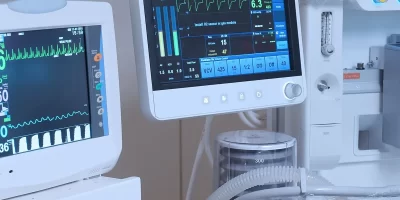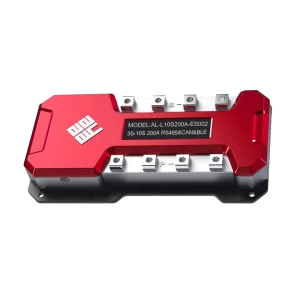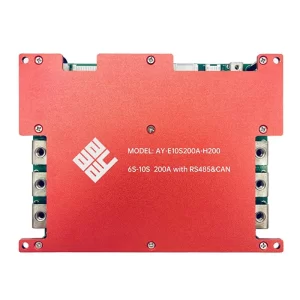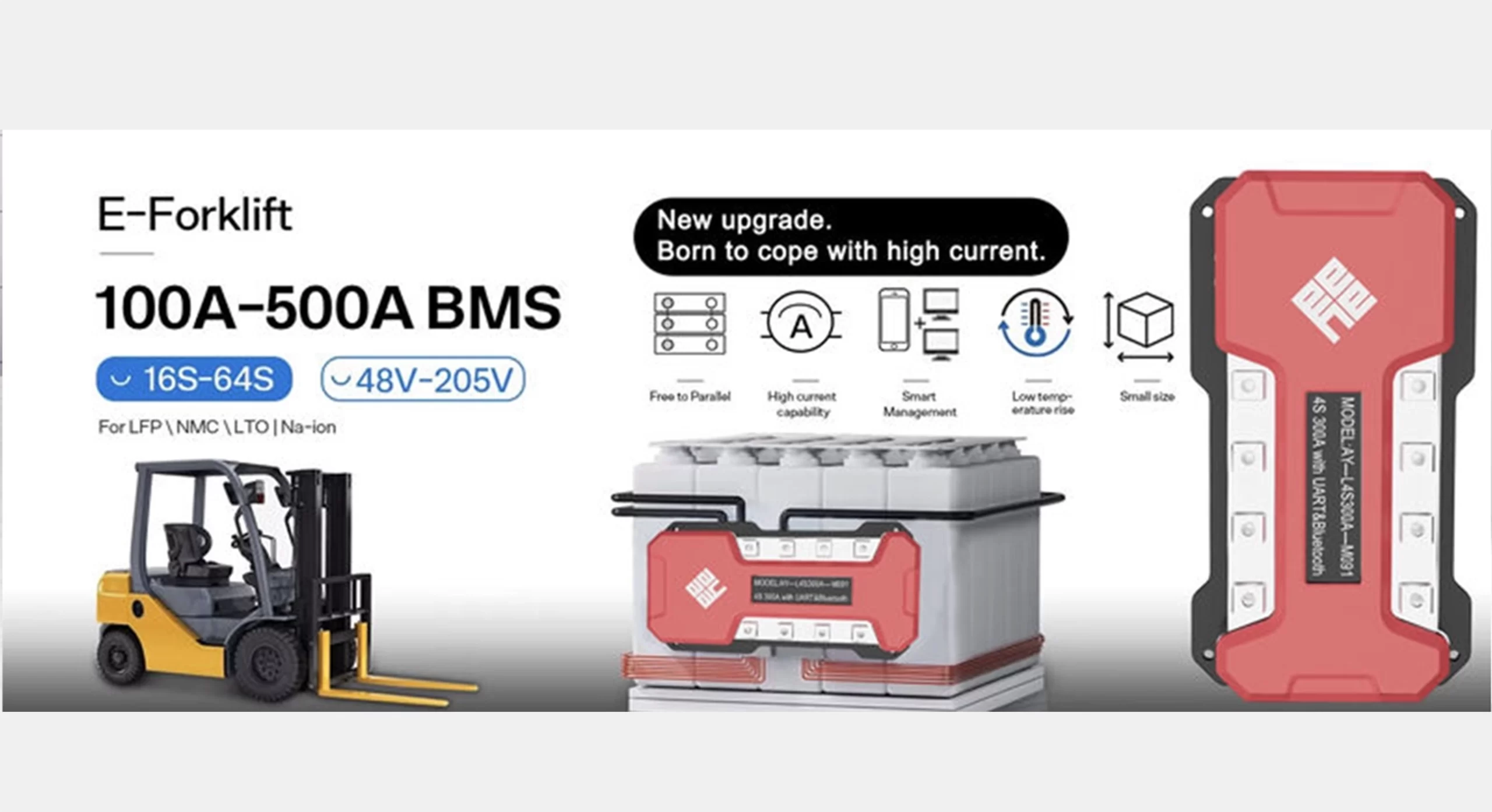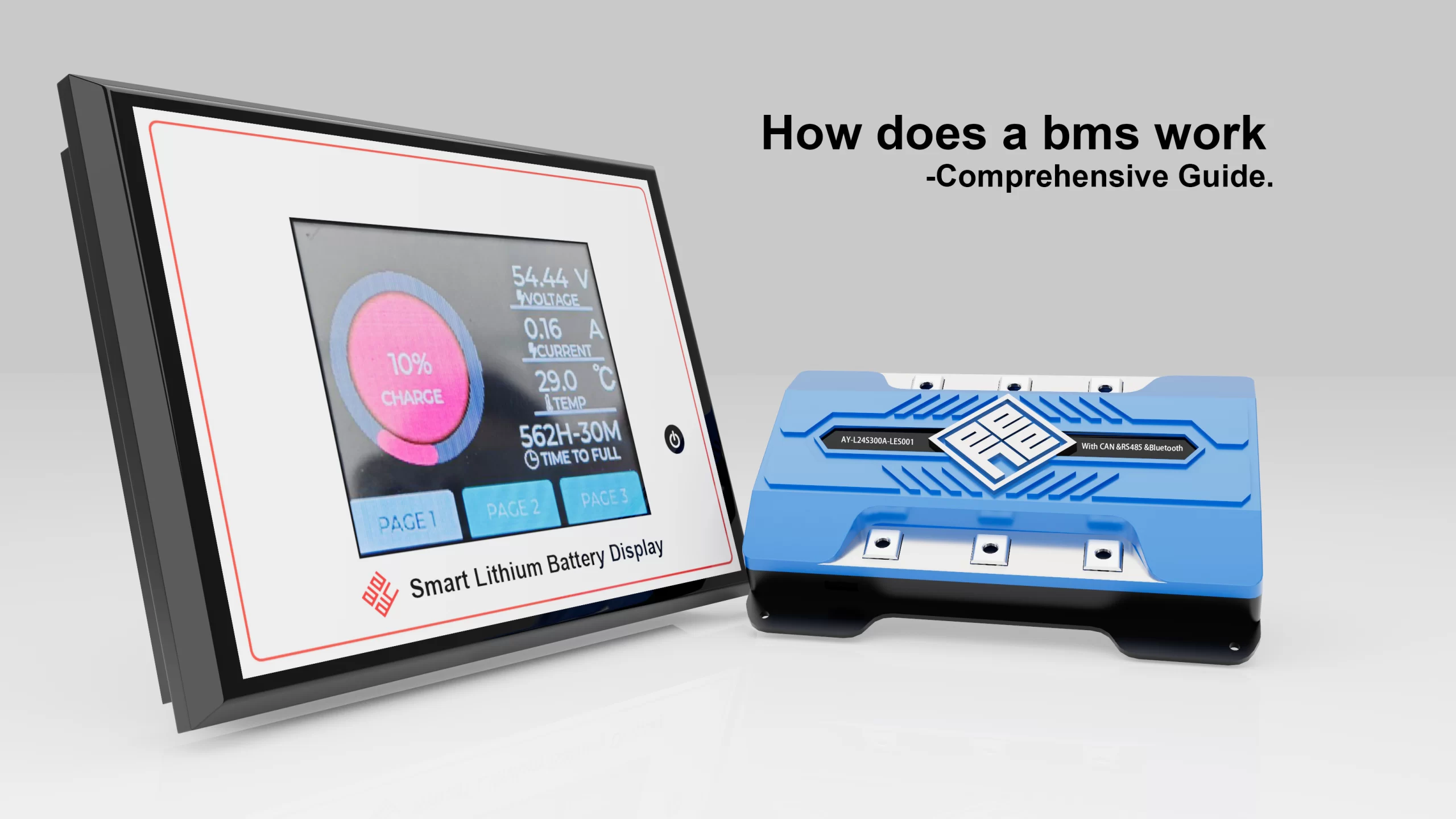Home About Us EVENTS & NEWS Battery Management System in Electric Vehicles: The Core of Safe and Efficient EV Operation
Battery Management System in Electric Vehicles: The Core of Safe and Efficient EV Operation
Battery Management System in Electric Vehicles: The Core of Safe and Efficient EV Operation
As the global shift toward electrified transportation accelerates, the battery management system in electric vehicles (EVs) has emerged as a cornerstone of innovation. Battery management systems are becoming more and more important in electric vehicles. The battery management system (BMS) is essential to every EV on the road today, whether it’s for increasing charging efficiency, prolonging battery life, or guaranteeing passenger safety.
From everyday passenger vehicles to high-performance commercial fleets, battery management system in electric vehicles manages the complex network of lithium-ion cells with intelligence, precision, and reliability. We shall examine the definition and operation of BMS.
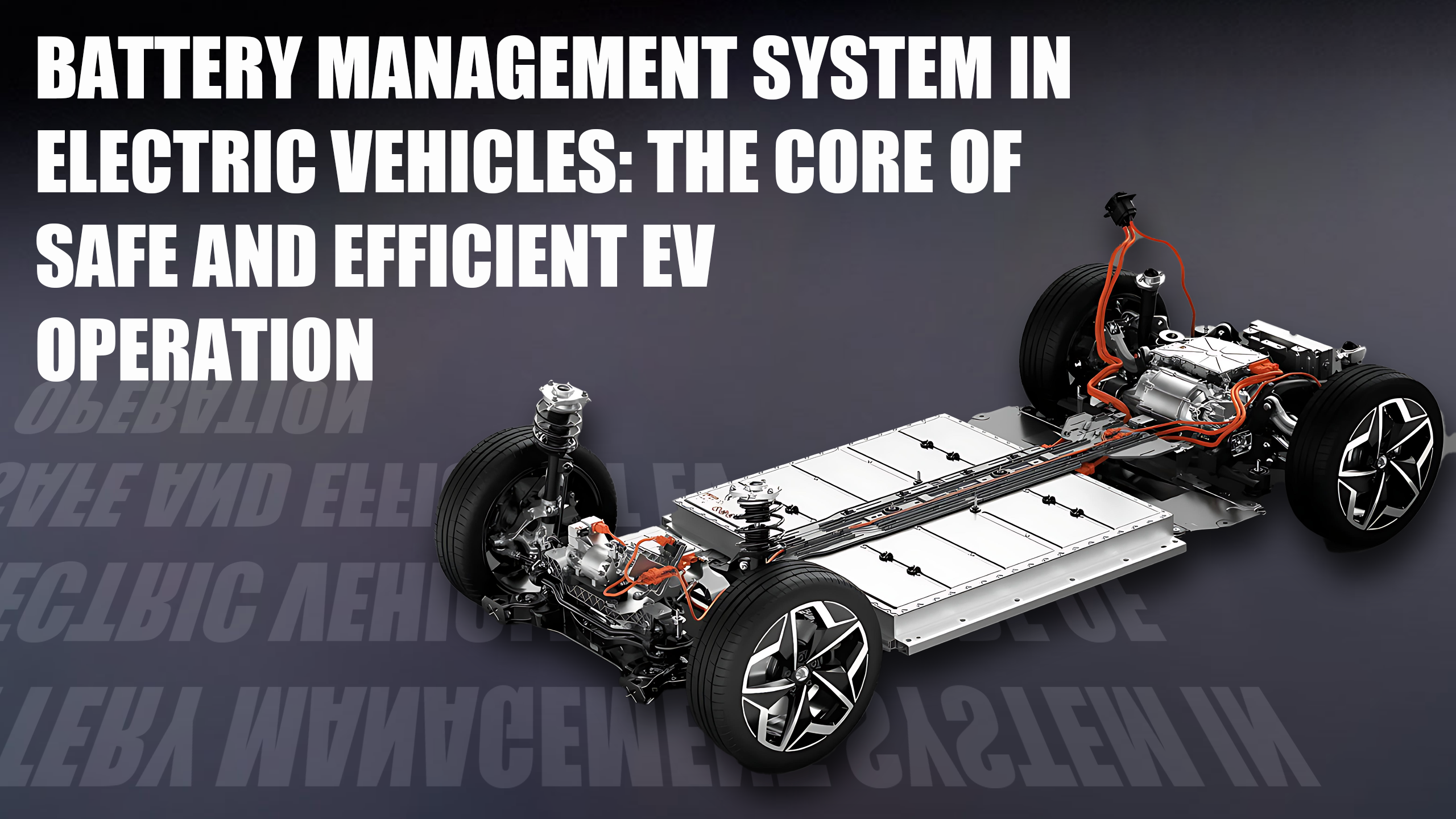
What Is a Battery Management System in Electric Vehicles?
A battery management system in electric vehicles is an electronic control unit that monitors and regulates the performance of battery packs. Its core functions include:
- Voltage and current monitoring
- State of Charge (SOC) and State of Health (SOH) estimation
- Thermal management
- Cell balancing
- Short circuit and overcharge protection
- Communication with vehicle control systems
An EV battery without a BMS may rapidly become unstable, resulting in overheating, a decreased range, or potentially dangerous failures.
Core Structure of an EV Battery Management System
The architecture of a modern battery management system in electric vehicles integrates both hardware and software components:
- Sensor Modules: Collect real-time data on temperature, voltage, and current across individual cells.
- Microcontroller Unit (MCU): Processes incoming data, runs safety algorithms, and manages control logic.
- Communication Interface: Uses CAN, RS485, or UART protocols to interact with the vehicle’s ECU or cloud systems.
- Balancing Circuitry: Ensures uniform voltage across all cells to maintain battery pack health.
- Power Supply Circuit: Provides operating voltage to the BMS itself.
All of them are combined by Shenzhen Ayaa Technology to create modular, adaptable BMS systems that can scale from 3S to 35S battery packs.
How Does a BMS Work in Electric Vehicles?
At the heart of a battery management system in electric vehicles, a real-time loop continuously monitors:
- Cell voltages: To detect overcharging or deep discharge conditions.
- Current flow: To prevent unsafe charging or discharging currents.
- Temperature: To trigger thermal protection if the battery becomes too hot or too cold.
The BMS immediately initiates precautionary measures—turning off power, notifying vehicle controllers, or turning on thermal management systems—as soon as anomalies are identified. Additionally, it performs:
- SOC and SOH calculations through complex algorithms
- Passive or active cell balancing
- Data logging for diagnostic analysis
Applications of BMS Across Electric Vehicle Types
The battery management system in electric vehicles is not one-size-fits-all. The use-case and vehicle class determine its configuration:
- Passenger EVs: Prioritize long range, safety, and fast charging.
- Commercial EVs: (e.g., forklifts, delivery trucks): Emphasize durability, operational uptime, and high current handling.
- Light EVs: (e.g., drones, e-bikes): Require compact, lightweight BMS with precise energy usage monitoring.
The BMS models in Shenzhen Ayaa’s lineup are customized for every class and include solutions with high-current capacity, broad working temperature ranges, and CAN/RS485 connectivity.
Key Features That Define Modern BMS in EVs
The evolution of the battery management system in electric vehicles has led to a suite of smart features:
- Real-time monitoring and alerts
- High-accuracy voltage and temperature sensing
- Software updates and parameter tuning
- Cloud-based diagnostics via telematics
- Adaptive charging and discharging strategies
- Modular and scalable designs for different battery configurations
Ayaa Technology’s Flagship Products for Electric Vehicles
AY-L24S300A-ES001 (7S–24S): High-Current BMS for Demanding Applications
- Voltage Range: Supports up to 24S (100.8V nominal)
- Current: Continuous charging/discharging current of 300A
- Communication: RS485, CAN
- Functionality: High accuracy SOC/SOH, thermal monitoring, short-circuit protection
- Ideal For: Forklifts, electric trucks, heavy-duty commercial EVs
AY-L10S200A-ES002 (3S–10S): Compact BMS for Light Electric Vehicles
- Voltage Support: 12.6V–42V
- Discharge/Charge Current: 200A
- Communication: CAN/RS485
- Material: Industrial-grade PCB and passive balance circuitry
- Application: Lightweight EVs such as scooters, utility vehicles, small AGVs
AY-LS10S200A-H200 (6S–10S): Advanced BMS with Wide Temperature and Smart Protection
- Charging Voltage: 25.2V–42V
- Max Current: 200A continuous
- Temperature Range: –40°C to +85°C operation
- Protection: Dual overcurrent stages (450A/600A), short circuit, temperature, weak current switch
- Features: Built-in heater, SOC accuracy of 5–8%, NTC temperature sensors
- Applications: Cold-climate EVs, military and industrial transport vehicles
Why Choose Ayaa Technology for Your EV BMS Needs?
Shenzhen Ayaa Technology Co., Ltd. brings over 20 years of experience in the battery industry and specializes in smart battery management systems for electric vehicles across global markets including the U.S., Germany, and Japan. Our BMS solutions deliver:
- Certified safety and reliability
- Support for CAN, SMBUS, RS485, UART communication
- Passive/active balancing
- Modular product range for 1S–35S battery packs
- End-to-end services: R&D, manufacturing, testing, and integration
Through clever BMS design, Ayaa guarantees optimal battery performance and a longer lifespan for both passenger EVs and specialized commercial applications.
FAQ
Q: What is electric vehicle battery management system?
A: When renewable energy sources like solar or wind power are available, an EV energy management system may synchronize the charging process. To lessen dependency on fossil fuels, the system might, for instance, prioritize charging EVs during periods of high solar energy generation.
Q: Why is BMS important in EVs?
A: An essential method for tracking and managing battery condition is the BMS. The BMS maximizes battery performance while maintaining battery safety with this feature. It is anticipated that more and more BMSs will be integrated into EVs as they are manufactured in greater quantities.
Q: How does the BMS system work?
A: In order to control and optimize different building systems, a Building Management System (BMS) gathers data from sensors and equipment inside a structure, processes it centrally, and then uses the results. This centralized system aids in the effective management of a building’s operations by using a network of hardware and software.
The battery management system in electric vehicles is no longer just a safety requirement—it’s a performance enabler and cost saver. Battery life can be greatly increased, warranty claims can be decreased, and user experience can be enhanced with a well-designed BMS.
With devices like the AY-L24S300A-ES001, AY-L10S200A-ES002, and AY-LS10S200A-H200, Shenzhen Ayaa Technology is at the forefront of providing EV manufacturers and system integrators around the world with reliable, intelligent, and adaptable BMS solutions.
Visit www.ayaatech.com or get in touch with our technical sales team directly to find out more or to request samples for assessment.








